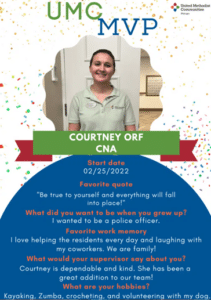Did you know that many seniors are simultaneously managing three or more chronic health conditions? That means multiple medications, numerous visits to different doctors and specialists, and treatment plans that may change every few months. If you’re juggling a few different health issues, it’s important to know that you’re not alone. Advocate for yourself at each appointment and bring your spouse or a close friend with you for extra support. In this article, our senior care teams in NJ have compiled a list of more tips for managing multiple chronic health conditions.
Tell your doctor right away if a treatment doesn’t seem to be working or is causing problems.
Medications often cause side effects, and taking multiple medications can result in certain unpleasant interactions. While your doctor can give you an idea of what to expect, they can’t predict every interaction. If you experience uncomfortable side effects or medication interactions that are out of the norm, contact your doctor immediately so they can find a suitable alternative.
Speak up if the treatment plan is too complicated, confusing, or unclear.
When you’re taking a few different medications at once, your doctor should give you extremely clear written instructions. These directions should include when to take each medication, whether or not you need to take each medication with food, what time of day to take your medications, and things to avoid while on certain medications, such as alcohol.
If anything seems unclear, the best time to get clarification is while you’re still with the doctor. Don’t worry about making the doctor repeat themselves or asking too many questions. It’s important that you understand exactly how to take the various medications you’ve been prescribed. If you have someone accompanying you at the appointment, you can ask them to take notes as well to remember and understand the specifics of properly managing your medications.
The best place to keep your medication instruction sheet is on the fridge, since you likely keep your medications in one of your kitchen cabinets. If you keep your medications in the bathroom instead, you might want to keep the instructions in a bathroom drawer so it’s easily accessible whenever you need it.
Tell the doctor about your older adult’s priorities for care
If you’re helping your senior parent manage their medications, you may need to check in with their doctor from time to time. It’s important that their doctor is aware of certain things like your parent’s lifestyle. For example, if your dad loves to be outdoors and spends a lot of time outside gardening, they may need to avoid medications that make them extra sensitive to sunlight.
More than anything, you want your senior parent to be safe and comfortable when dealing with their chronic conditions. Be sure to check in with them regularly and ask how they’re feeling. Check that they aren’t experiencing any pain or discomfort as a result of their medications, and help them manage their medication, schedule their doctor’s appointments, and even attend their appointments with them if they agree to it.
For more information on helping your senior loved one manage multiple chronic health conditions, or if you have any questions about our senior care options in NJ, please visit our website at: https://umcommunities.org
This blog was originally published at https://umcommunities.org/umc-corp/blog/multiple-chronic-health-conditions/
















